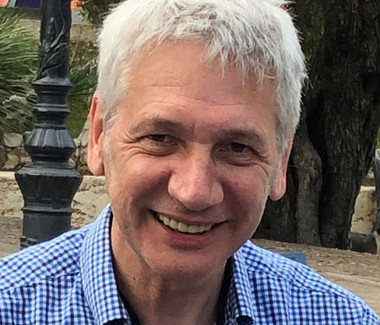Patrick Van Dijck

Patrick Van Dijck, Ph.D., Faculty of Science, Department of Biology. Unit: Molecular Biotechnology of Plants and Micro-organisms.
This academic year I will be guiding two EuroScholars students, one in each semester. Some years ago I already had such a student in my lab and this was a very nice experience. These students come from a completely different education system, where they have classes in smaller groups and get more assignments. I guess it is also typical that they are way more self-confident, in a positive way, than our local students. The EuroScholar system allows me to also bring my master and PhD students in contact with students from the US, as most students come from other parts in the world. The students clearly have a very high level regarding theoretical knowledge and I think it is perfect that they can then come into the lab to also acquire wet lab skills. Training the next generation of students is something important for me and that is also the reason that we have given several practical courses in Brazil, Argentina and South Africa. I also have between 7 and 12 master thesis students every year in my lab. This is also interesting for the EuroScholars as they have many ‘peers’ in the lab with whom they can interact.
The current EuroScholars student, Tia (from Colorado College), is working with the PhD student Jolien Vreys on elucidating why the human fungal pathogen Candida glabrata can only use glucose and trehalose as a carbon source, whereas all the transporters and enzymes to use other sugars, such as fructose and mannose are present, but apparently are not functional. This is strange as in the human host there is a lot of these sugars. The student is generating strains to investigate whether the sugar kinases can translocate from the cytoplasm to the nucleus and the other way around under certain conditions. This will give us an indication on whether one or more sugar kinases have an additional regulatory function besides sugar phosphorylation. Moreover, she is checking whether the presence of different sugars influences the sugar kinase expression even if the sugars cannot be metabolized by Candida glabrata. Based on the contributions that the student made, she will be a coauthor on the paper but much more research is required to come to a good publication. More information on the ongoing work in the Laboratory of Molecular Cell Biology can be found at our website
Currently, our department is offering the following research project within the EuroScholars Program:
